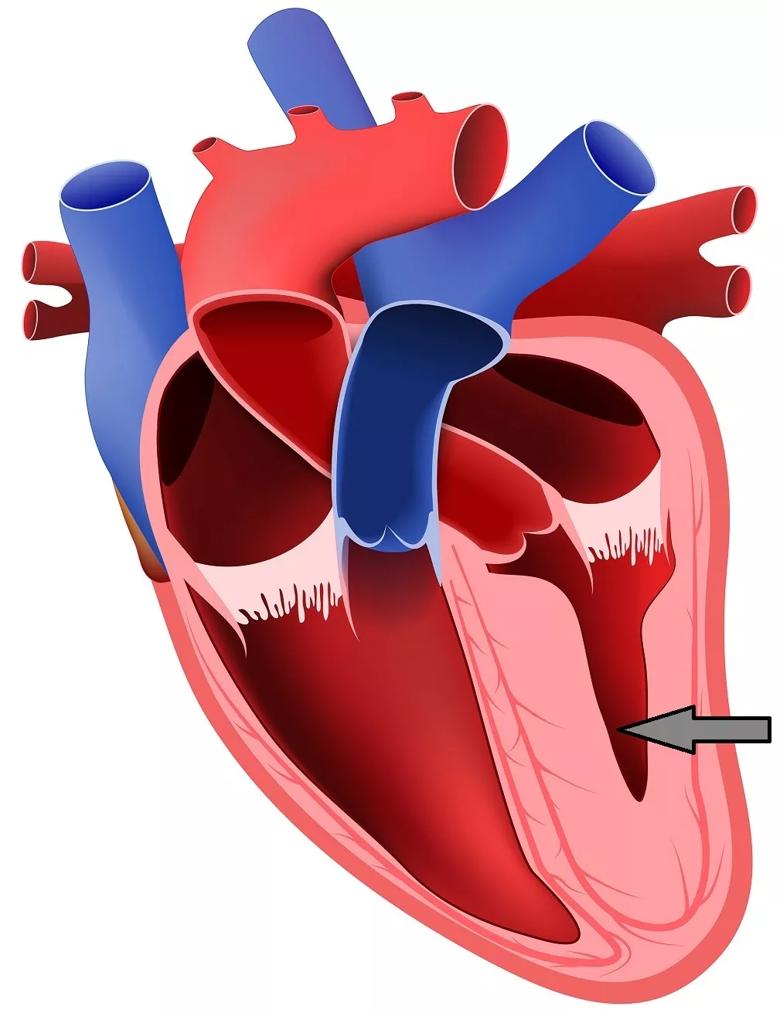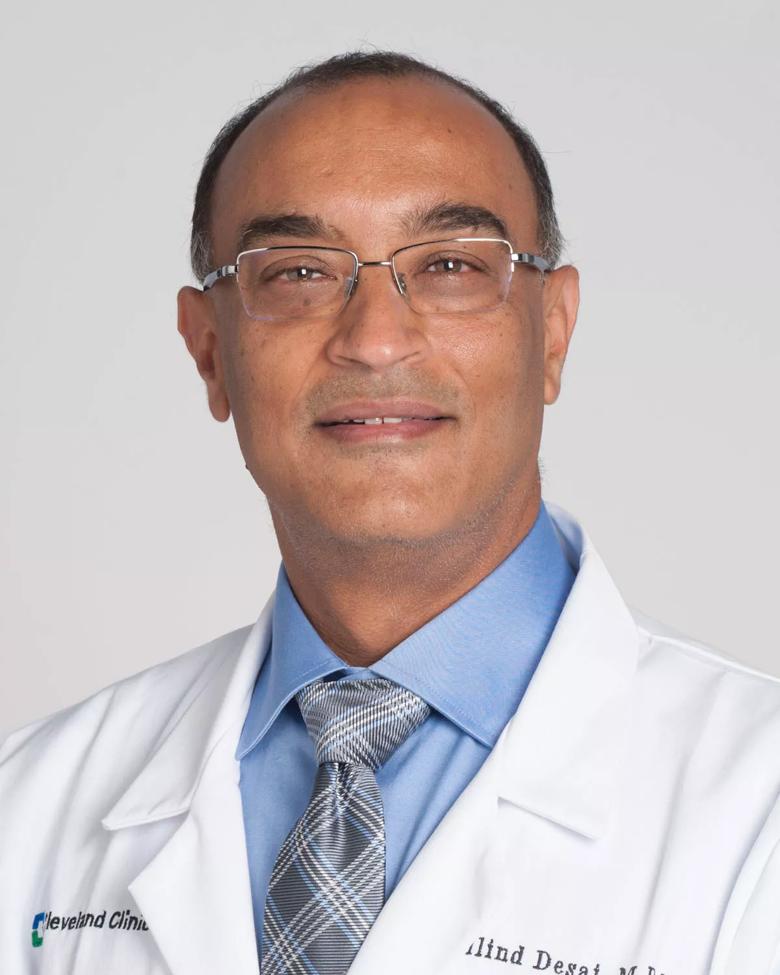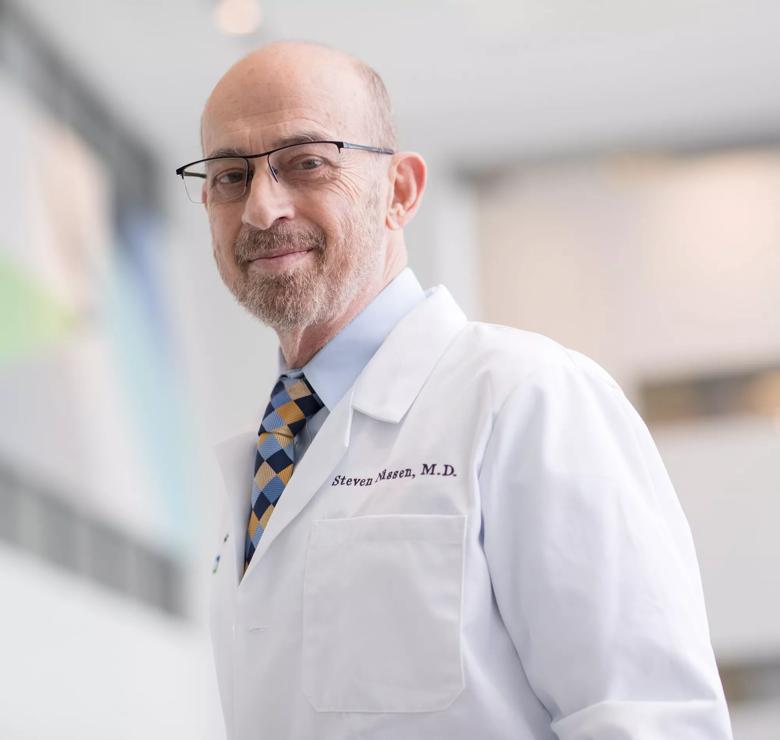Medication could add new therapy alternative to surgery
Content is property of Cleveland Clinic and for news media use only.


Image content: This image is available to view online.
View image online (https://assets.clevelandclinic.org/transform/02ad3263-8354-4c5b-b6aa-f711aca9193c/GettyImages-1282895732crop_jpg)
Findings from a Cleveland Clinic-led clinical trial showed that the use of an experimental drug in severely symptomatic, hypertrophic cardiomyopathy patients significantly reduced the need for invasive procedures.
The trial evaluated whether the drug, mavacamten, could be used as an alternative to heart surgery or alcohol septal ablation, therapies used to reduce thickening of the septum, the wall separating the right and left sides of the heart.
Findings from the “VALOR-HCM Study: Myosin Inhibition as an Alternative to Surgical Myectomy or Alcohol Septal Ablation in Obstructive Hypertrophic Cardiomyopathy” were presented today during a Late Breaking Science Session at the American College of Cardiology’s 71st Annual Scientific Session in Washington D.C.
Hypertrophic cardiomyopathy is a complex type of heart disease that causes thickening of the heart muscle, left ventricular stiffness and mitral valve changes. It affects an estimated 600,000 to 1.5 million Americans, or one in 500 people, but many of those patients go undiagnosed until the disease has progressed.

Image content: This image is available to view online.
View image online (https://assets.clevelandclinic.org/transform/ea92daec-83b9-4aa4-8e28-8754555ba0db/Desai_Milind_704032L_jpg)
Milind Desai, M.D.
The cause of hypertrophic cardiomyopathy can be unknown or attributed to genetics, high blood pressure or aging, making it difficult to identify a high-risk population. Symptoms include chest pain, palpitations, shortness of breath, fatigue and syncope (fainting). Most people with hypertrophic cardiomyopathy have a low risk for sudden cardiac death. However, the condition is the most common cause of sudden cardiac death in people under age 30.
Medications such as beta-blockers, calcium channel blockers and antiarrhythmics are often prescribed to treat the symptoms of hypertrophic cardiomyopathy and prevent further complications. Patients with persistent symptoms may also undergo a septal myectomy, in which a surgeon removes a small amount of the thickened septal wall to widen the outflow tract (the path the blood takes) from the left ventricle to the aorta. Another option is alcohol ablation, a cardiac catheterization procedure where a tiny amount of pure alcohol is injected into the septum, causing it to shrink back to a more normal size and widening the passage for blood flow.
The VALOR-HCM phase 3 trial enrolled 112 symptomatic hypertrophic cardiomyopathy patients at 19 sites across the United States. All of the patients were referred to have surgical myectomy or alcohol ablation. They were randomized to an oral myosin inhibitor, mavacamten (5 to 15 mg daily) or placebo. Mavacamten works by reducing excessive contraction of the heart muscle, making it work more efficiently. It also reduces the stiffness of the heart muscle.

Image content: This image is available to view online.
View image online (https://assets.clevelandclinic.org/transform/1d0b8db6-c98a-42b1-a699-d37182807610/nissen-steve-074-e1605303442379_jpg)
Steven E. Nissen, M.D.
After 16 weeks, 43 of the 56 placebo-treated patients (76.8%) continued to meet guideline criteria for surgery or elected to undergo surgery compared with 10/56 (17.9%) mavacamten-treated patients. The study demonstrated significant reduction in left ventricular outflow tract pressure gradient in mavacamten-treated patients, along with improvements in quality-of- life measures. The long-term safety and outcomes of mavacamten will continue to be studied.
“These results could give what can be a very sick patient population a non-invasive therapy alternative,” said Milind Desai, M.D., MBA, director of the Hypertrophic Cardiomyopathy Center and director of clinical operations in Cleveland Clinic’s Heart Vascular & Thoracic Institute, and principal investigator of the trial. “There are few high-volume centers performing septal myectomy or alcohol ablations which may limit a patient’s access to optimal results and patients may need repeat interventions. That is why it is vital to explore non-invasive options for these patients.”
Steven E. Nissen, M.D., Chief Academic Officer of the Heart, Vascular & Thoracic Institute at Cleveland Clinic and the trials’ senior author, said, “The vast majority of the patients, even those in the placebo group, chose to continue the drug after 16 weeks, suggesting a strong desire for this type of treatment option.”
The trial was funded by MyoKardia, Inc, a wholly owned subsidiary of Bristol Myers Squibb (Brisbane, CA) and coordinated by Cleveland Clinic Coordinating Center for Clinical Research (C5Research) and Medpace (Cincinnati, OH).
Dr. Desai is a consultant for Bristol Myers Squibb and Medtronic, and serves on the scientific advisory board of Caristo Diagnostics.
Dr. Nissen has served as a consultant for many pharmaceutical companies and has overseen clinical trials for Amgen, AstraZeneca, Bristol Myers Squibb, Eli Lilly, Esperion, Novartis, Novo Nordisk, Orexigen, Takeda and Pfizer. However, he does not accept honoraria, consulting fees or other compensation from commercial entities.
Video content: This video is available to watch online.
View video online (//www.youtube.com/embed/A1Epnx1xE5w)
YouTube video player
About Cleveland Clinic
Cleveland Clinic is a nonprofit multispecialty academic medical center that integrates clinical and hospital care with research and education. Located in Cleveland, Ohio, it was founded in 1921 by four renowned physicians with a vision of providing outstanding patient care based upon the principles of cooperation, compassion and innovation. Cleveland Clinic has pioneered many medical breakthroughs, including coronary artery bypass surgery and the first face transplant in the United States. U.S. News & World Report consistently names Cleveland Clinic as one of the nation’s best hospitals in its annual “America’s Best Hospitals” survey. Among Cleveland Clinic’s 72,500 employees worldwide are more than 5,050 salaried physicians and researchers, and 17,800 registered nurses and advanced practice providers, representing 140 medical specialties and subspecialties. Cleveland Clinic is a 6,500-bed health system that includes a 173-acre main campus near downtown Cleveland, 22 hospitals, more than 220 outpatient facilities, including locations in northeast Ohio; southeast Florida; Las Vegas, Nevada; Toronto, Canada; Abu Dhabi, UAE; and London, England. In 2021, there were 10.2 million total outpatient visits, 304,000 hospital admissions and observations, and 259,000 surgical cases throughout Cleveland Clinic’s health system. Patients came for treatment from every state and 185 countries. Visit us at clevelandclinic.org. Follow us at twitter.com/ClevelandClinic. News and resources available at newsroom.clevelandclinic.org.
Editor’s Note: Cleveland Clinic News Service is available to provide broadcast-quality interviews and B-roll upon request.